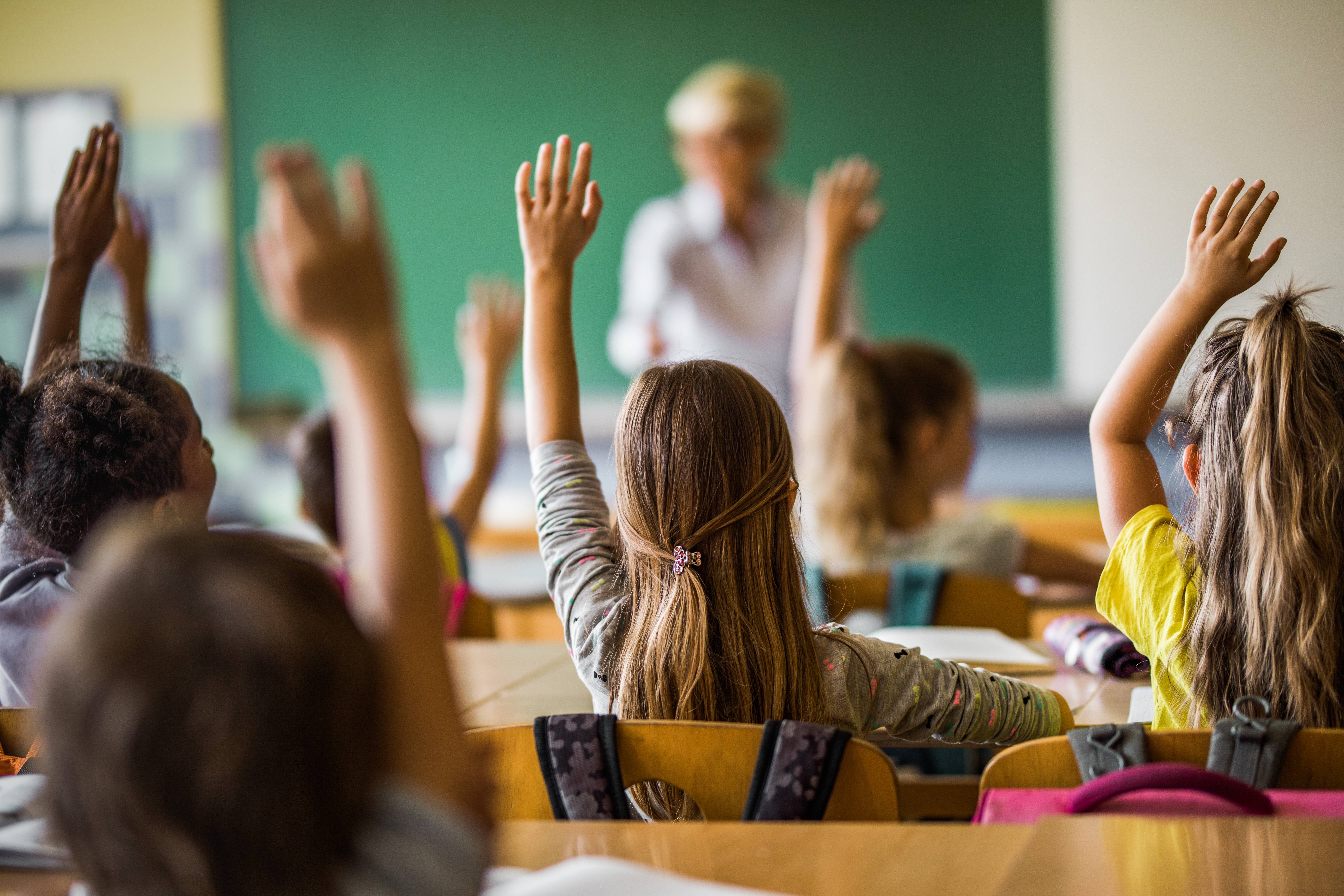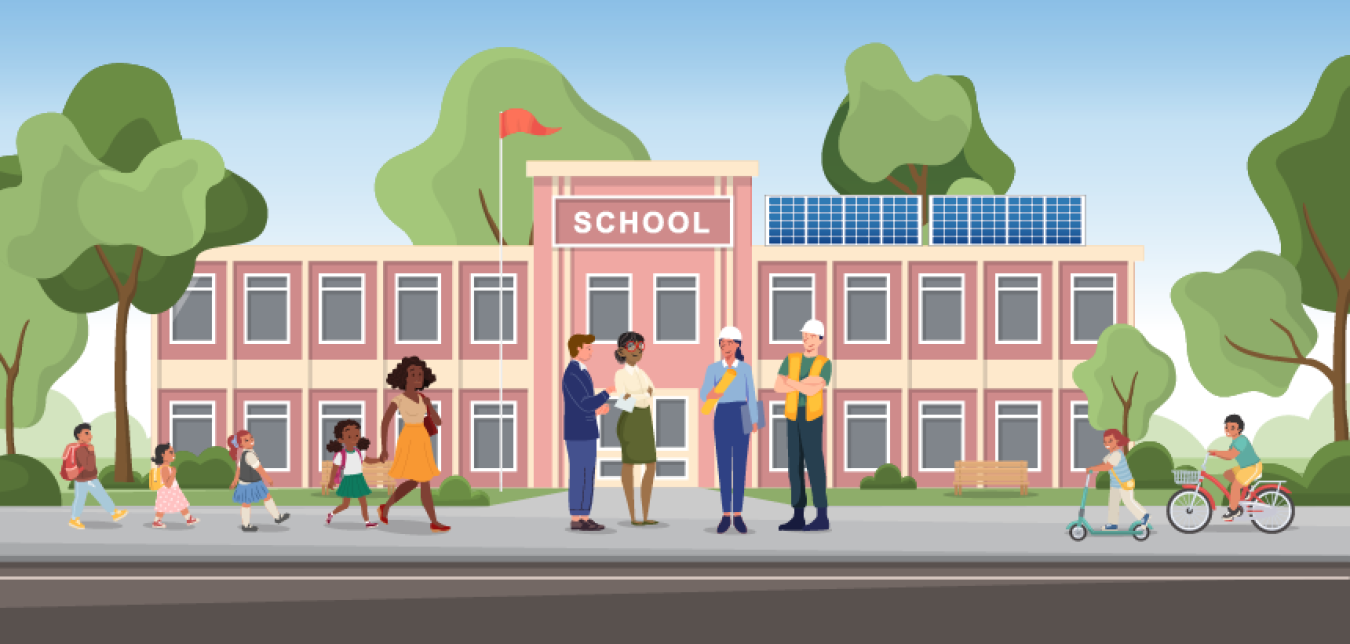Why It's Crucial to Rally Together to Save Temecula Schools
Why It's Crucial to Rally Together to Save Temecula Schools
Blog Article
The Effect of School Environments on Academic Success and Personal Health
The college environment significantly affects both academic success and personal well-being, including components such as physical format, classroom ambience, and interpersonal dynamics. The style of academic areas, including natural illumination and ergonomic furniture, can boost students' concentration and convenience. The top quality of teacher-student partnerships and the nature of peer communications play critical duties in fostering an ambience helpful to learning and emotional assistance. Recognizing just how these various aspects interaction to shape student outcomes raises important concerns concerning maximizing academic settings for alternative growth. Exactly how can colleges purposefully enhance these elements to much better support their pupils?
Physical Design and Style
Exactly how does the physical layout and design of a college influence scholastic success? The plan and visual of a school environment can significantly influence students' learning outcomes.
All-natural lighting and efficient air flow systems are critical in improving cognitive function and lowering absenteeism. Studies have shown that class with enough natural light enhance student focus and reduce feelings of drowsiness. Ergonomic furnishings customized to pupils' requirements can protect against physical discomfort, allowing for prolonged focus and interaction in scholastic tasks.
Accessibility to outdoor spaces and aesthetically pleasing surroundings also play an essential role - Save Temecula Schools. Environment-friendly rooms and well-maintained institution grounds offer opportunities for physical workout and mental leisure, both of which are essential for maintaining high levels of scholastic performance. Essentially, a thoughtfully created physical setting can act as a stimulant for scholastic quality, fostering an environment that sustains both mentor and learning
Class Atmosphere
An atmosphere that fosters a sense of safety and security, inclusivity, and common regard motivates trainees to involve more actively in their knowing procedures. The setting of a classroom, including elements such as illumination, sound degrees, and seating arrangements, can considerably affect trainee focus and motivation.
In addition, the class ambience ought to sustain a society of partnership and open interaction. When pupils feel comfy revealing their concepts and asking concerns, they are a lot more likely to engage deeply with the material and develop essential assuming abilities - Save Temecula Schools. Peer communications and team activities can boost understanding by giving varied perspectives and promoting team effort
Furthermore, developing regular regimens and clear assumptions can create a structured setting that enables trainees to concentrate on their researches. By decreasing unpredictability and offering a predictable framework, pupils can better manage their time and duties. Ultimately, a favorable class atmosphere not just improves academic performance but additionally adds to the overall wellness of pupils, preparing them for future academic and personal ventures.
Teacher-Student Relationships
Building on the significance of a favorable classroom environment, the relationships between trainees and educators play an essential role in forming academic success. A healthy and balanced teacher-student relationship cultivates a learning atmosphere where trainees feel valued, comprehended, and supported, which significantly boosts their motivation and involvement. When students view their instructors as approachable and understanding, they are more likely to take part actively in class and look for help when required, adding to a much deeper understanding of the subject issue.

Efficient interaction is crucial to supporting these partnerships. Educators that use open, respectful, and consistent interaction click reference develop a foundation of trust fund. This trust enables trainees to reveal their issues and concepts openly, fostering a collaborative discovering setting. Essentially, solid teacher-student connections are a foundation of academic success, playing an essential function in both academic accomplishment and personal growth.
Peer Communications
Peer interactions substantially affect academic success by shaping a trainee's cognitive and social advancement. Favorable peer communications can enhance a student's motivation and engagement in scholastic tasks via collective learning and mutual support.

Efficient peer communications also add to the advancement of essential life skills, such as teamwork, conflict, and communication resolution. These social expertises are essential for both academic success and personal well-being, underscoring the importance of cultivating favorable peer dynamics within the school setting.
Extracurricular Activities
Engaging in extracurricular activities plays a critical function in a pupil's that site scholastic success and individual advancement. Study continually suggests that trainees that get involved in extracurricular tasks tend to achieve greater scholastic efficiency.
Additionally, extracurricular participation promotes a feeling of belonging and neighborhood, which is essential for individual wellness. Taking part in group tasks permits students to develop and strengthen social media networks, enhancing their social and psychological intelligence. These interactions are essential for creating interpersonal skills that are advantageous in both future and academic specialist settings.
Additionally, after-school activities provide a constructive electrical outlet for students to discover their interests and interests past the basic curriculum. This expedition can cause the exploration of new talents and potential occupation courses, additionally motivating pupils to involve even more deeply in their scholastic job. To conclude, the role of after-school activities expands beyond plain recreation; they are indispensable to promoting an alternative educational experience that promotes both academic success and personal growth.
Conclusion
Altogether, the influence of institution environments on both scholastic success and individual health is extensive. Thoughtfully created physical formats click for more and classrooms, along with positive teacher-student connections and useful peer interactions, dramatically boost trainee motivation and engagement. In addition, the presence of helpful teachers can mitigate anxiety, promoting a nurturing environment helpful to holistic development. These components jointly highlight the value of creating and keeping optimal college environments for the advantage of students' academic and individual growth.
Ultimately, a positive class atmosphere not just enhances academic efficiency yet also contributes to the general wellness of trainees, preparing them for future instructional and individual ventures.

Report this page